ANOTHER EVENING - ANOTHER SET OF INVERTEBRATES AND PLANTS
I did it again. The place was the same, and so was the time. I drove about five or six kilometers to Palera to spend an hour or so in the field covered with tall grass and other herbaceous vegetation, busy searching for amazing small details to serve you on a digital plate in today's post. Hope you'll enjoy it.
The sun was very near the horizon when I arrived...
... and the scenery looked great in that warm evening light. I was thinking about getting a wide shot that includes most of the things around me when I noticed an insect resting on a leaf, beautifully illuminated by the sun that was almost ready to set. I mean, I didn't really see the insect, only the dark silhouette of its shadow. The backlight made the long, narrow leaf of the Rumex crispus plant translucent enough to reveal the bushcricket on the other side.
Here you can see the Rumex crispus leaves protruding like spears from the sea of surrounding vegetation.
Soon, the insect changed its pose, it was standing upside down now, so I took another shot through the leaf.
Rumex crispus is commonly known as the curly dock. For this photograph, I got closer to the ground, and I also spaced out a bit of the dense surrounding vegetation to show you the entire plant.
Here you can see the same insect in both poses, at the same time. I also came a bit closer to the subject in these two shots.
This photograph was taken through the macro lens. I managed to get very close after a bit of well-rehearsed sneaking. I don't wanna brag about my sneaking capabilities, but sometimes I just can't resist the urge to do it. Years of fixation with macro photography made a very stealthy dude out of me, and I wanna all world to know it. 😁
After all these portraits of a shadow, I wanted to get a picture of the real insect on the other side. In the following shot ...
... you can finally see the bushcricket that provided the shadow. It's a Tettigonia viridissima. A small, young, wingless nymph of that species.
Here you can see the Sonchus oleraceus flower buds photographed with flash and in natural light.
This photograph shows a bit more of that juicy herbaceous plant commonly known as the common milk thistle.
This tiny flower belongs to Geranium dissectum, commonly known as the cut-leaved crane's bill. The following photograph ...
... shows the entire plant. From a distance, the flowers look like vivid little dots scattered across the greenery.
This Monacha cartusiana snail was resting, sealed in its shell, on the upper part of the plant shown in the previous photograph.
Anthemis arvensis, commonly known as the mayweed or scentless chamomile, is the plant that covers most of the field I'm lately spending my evenings on.
Its growth is so dense that photographing a single plant looks like an almost impossible task.
To get the portrait shown in the above picture, I had to remove a bit of the surrounding vegetation. In the following photograph ...
... you can see a fly posing on the top of another Anthemis arvensis plant, about ten meters further.
The name of the species is Suillia gigantea. It belongs to the Heleomyzidae family. A bit later, not far from there ...
... a moth from the Plutellidae family landed on a plant of the same kind.
The name of the species is Plutella xylostella.
The scarlet pimpernel (Lysimachia arvensis) is a small, gracile plant that grows in the shade under the much taller, robust ones presented earlier in the post.
Its flowers are open only during the daytime.
Open or closed, these tiny red flowers are always very elegant.
Here you can see an even smaller spiderling feeding on its minuscule prey. This is a very young Neoscona adianta spider. The species belongs to the Araneidae family. The spiderling has built a web among the upper leaves of the Anthemis arvensis plant.
These tiny things that resemble flowers are the fruits of another small plant, visible only when you space out a bit the dense community of the taller ones.
I used the macro lens to make them look very big in these two shots.
The plant in question is Cerastium glomeratum, commonly known as the Mouse-ear chickweed.
It took me a bit of patience and quite a few failed attempts to get this relatively sharp shot in very low ambient light.
The night was almost there when I started photographing the Mouse-ear chickweed.
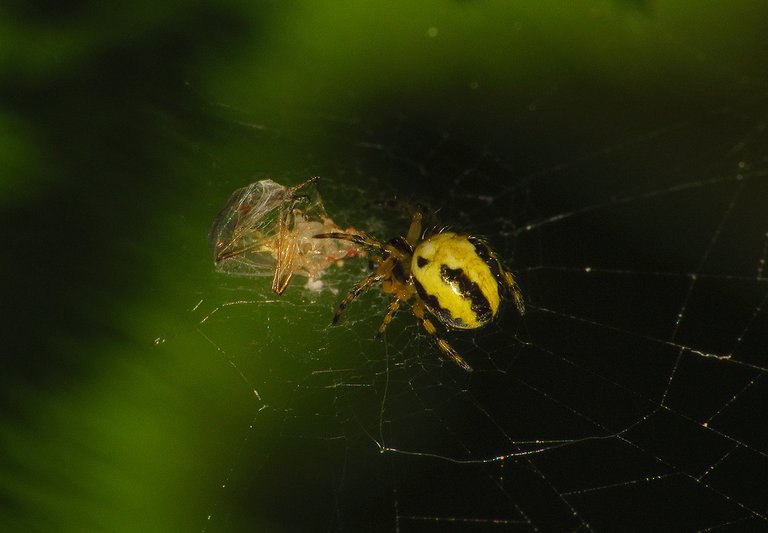
Here you can see another Neoscona adianta spiderling approaching the prey caught in the web.
I took these two photographs an hour earlier, when the sun was still visible low in the sky. They both show a portrait of the Capsella bursa-pastoris plant. The one on the left was taken in ambient light. For the one on the right, I used the small, built-in flash of my camera.
This small green insect, posing on the leaves of the scentless chamomile, is a bug from the Miridae family.
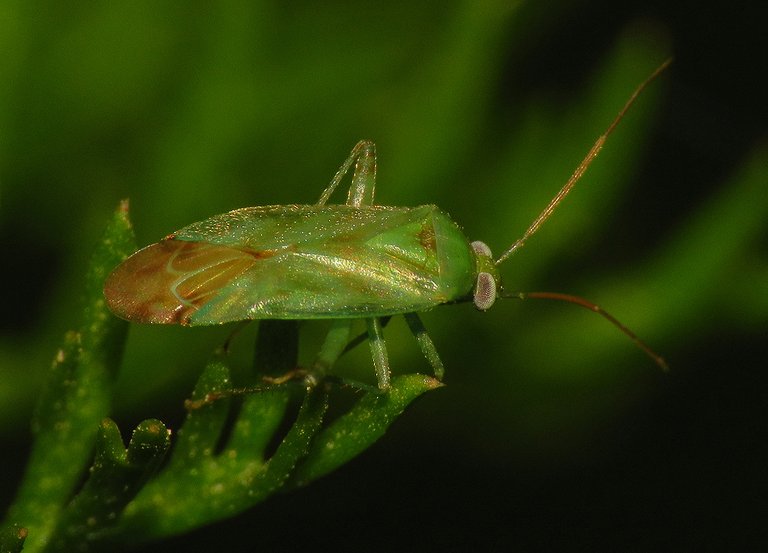
The name of the species is Lygocoris pabulinus.
And that's it. The post ends here. Hope you enjoyed the tour.
AS ALWAYS ON HIVE, THE PHOTOGRAPHS ARE MY WORK - THE END.
The following links will take you to the sites with more information about some of the protagonists of today's post. I found some stuff about them there.
https://en.wikipedia.org/wiki/Rumex_crispus
https://en.wikipedia.org/wiki/Tettigonia_viridissima
https://en.wikipedia.org/wiki/Sonchus_oleraceus
https://www.inaturalist.org/taxa/53075-Geranium-dissectum
https://en.wikipedia.org/wiki/Monacha_cartusiana
https://en.wikipedia.org/wiki/Anthemis_arvensis
https://www.inaturalist.org/taxa/336874-Suillia-gigantea
https://en.wikipedia.org/wiki/Diamondback_moth
https://en.wikipedia.org/wiki/Lysimachia_arvensis
https://en.wikipedia.org/wiki/Neoscona_adianta
https://en.wikipedia.org/wiki/Cerastium_glomeratum
https://en.wikipedia.org/wiki/Capsella_bursa-pastoris
https://www.naturespot.org/species/common-green-capsid
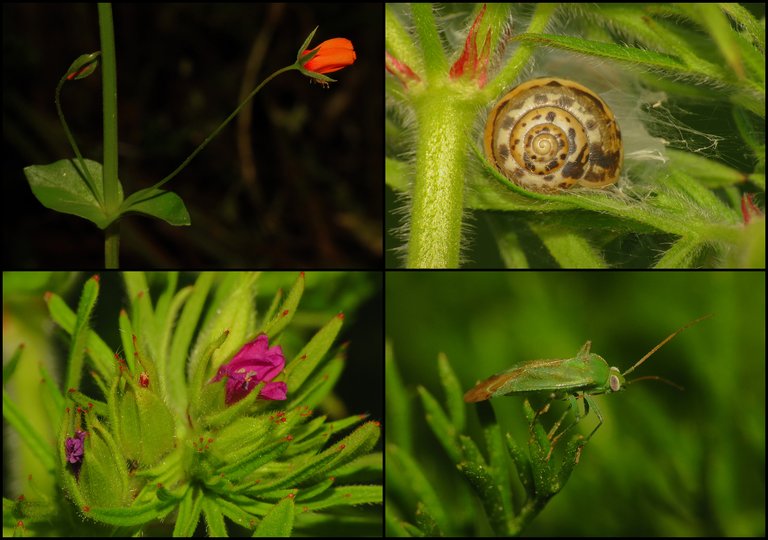

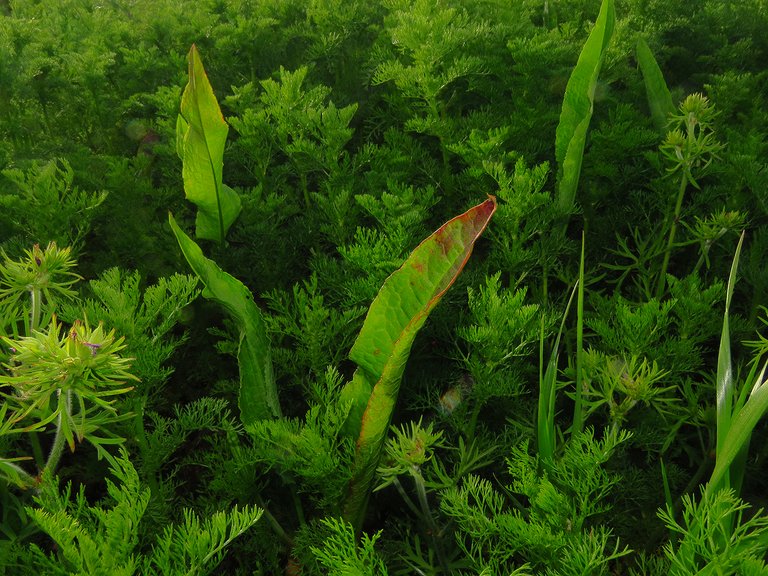
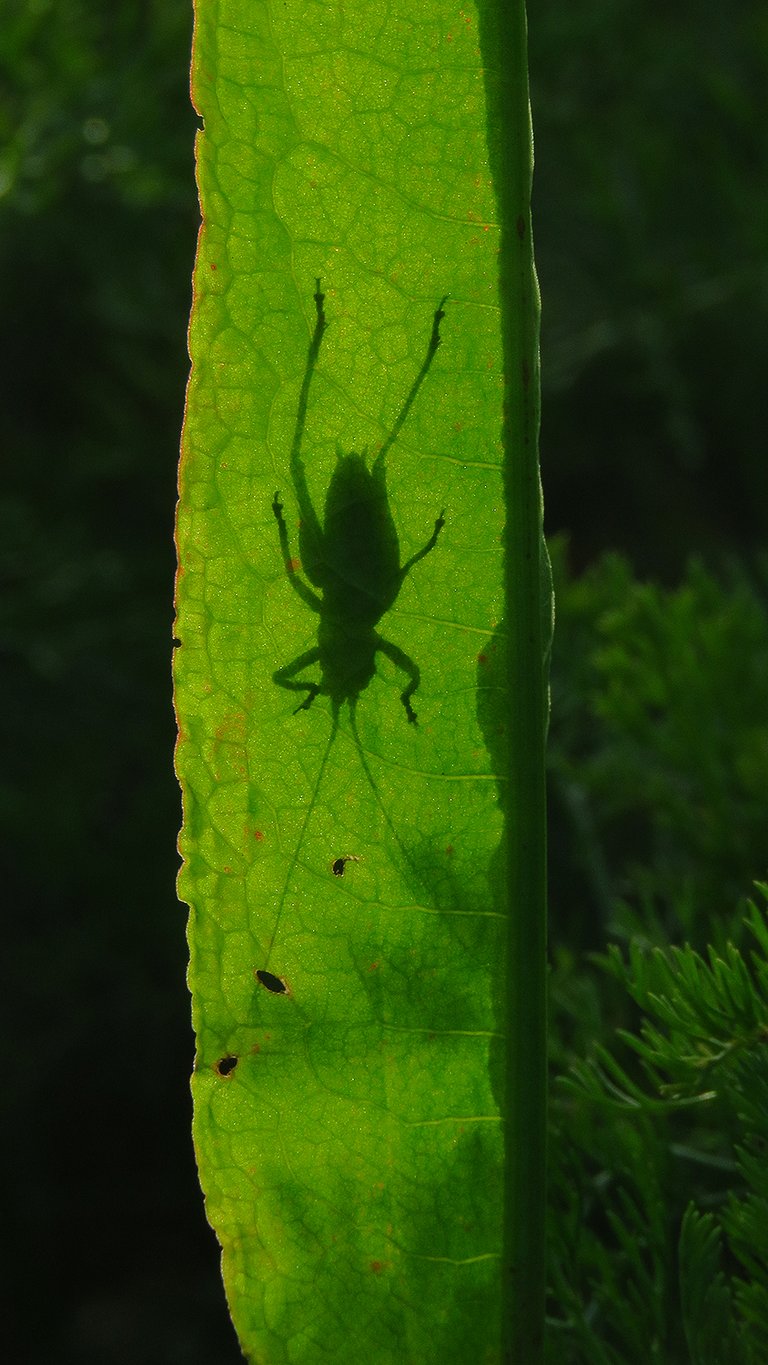
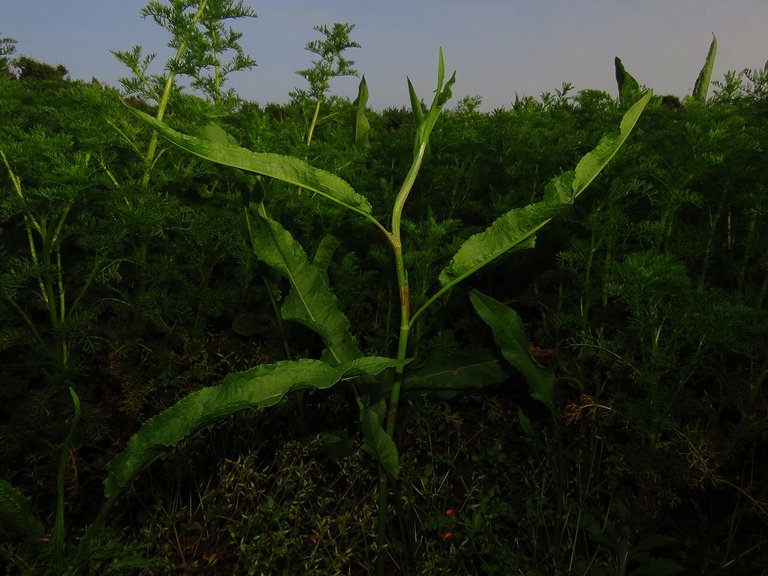
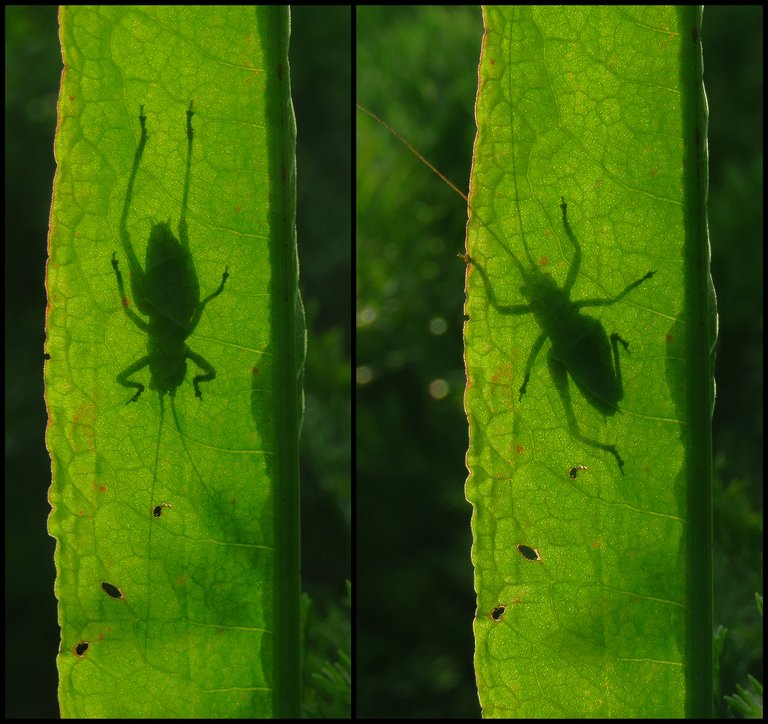
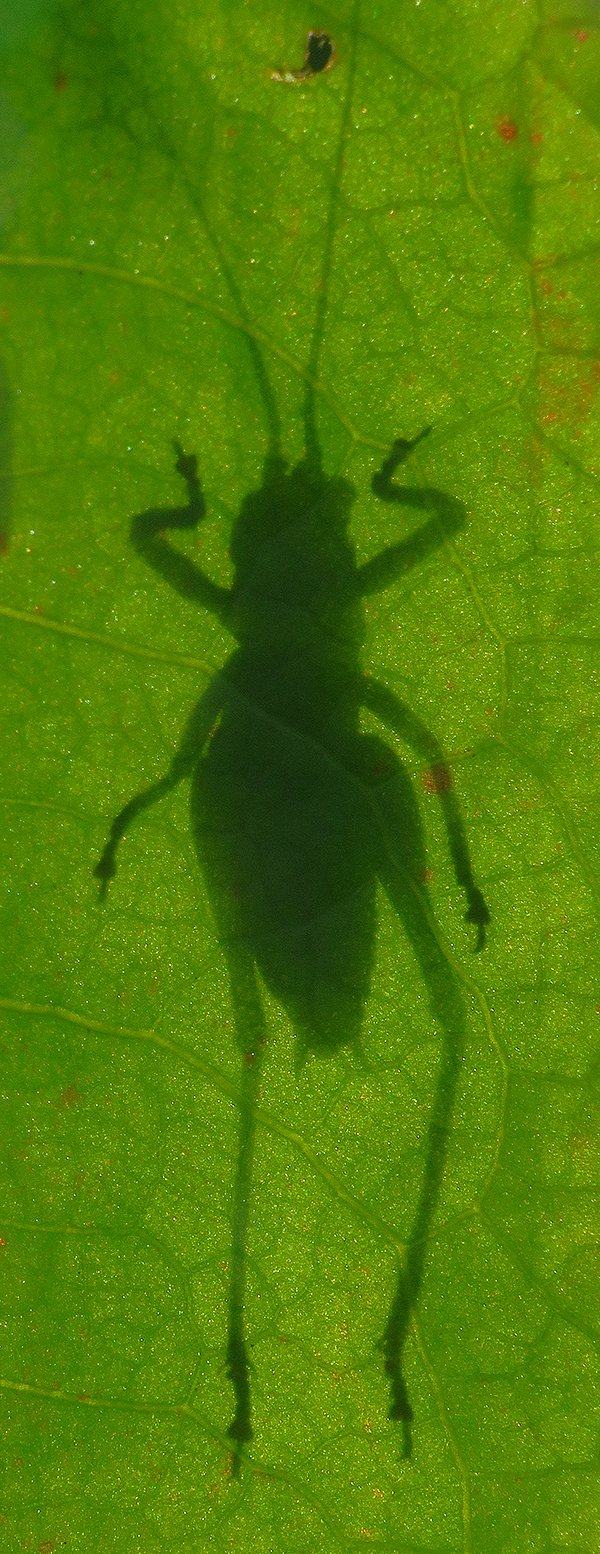
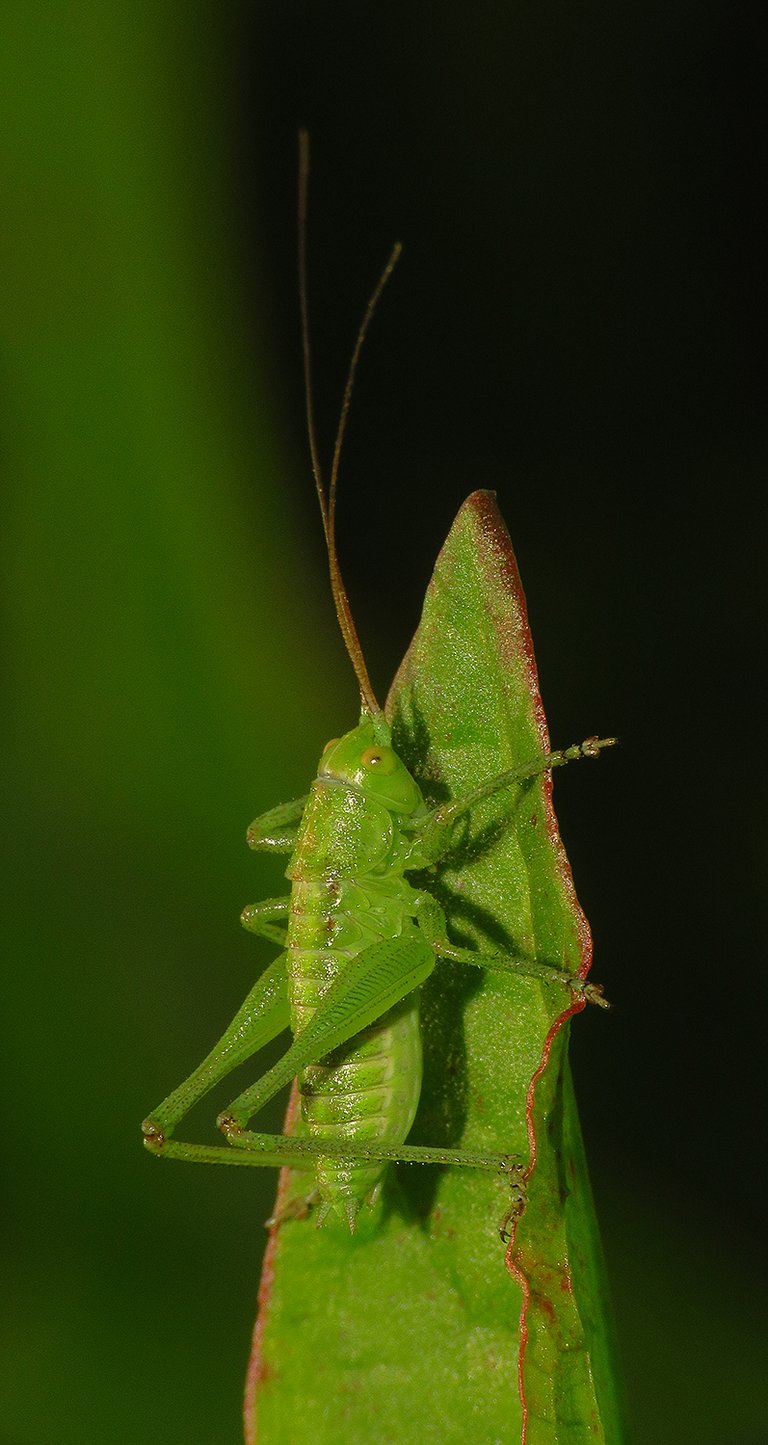
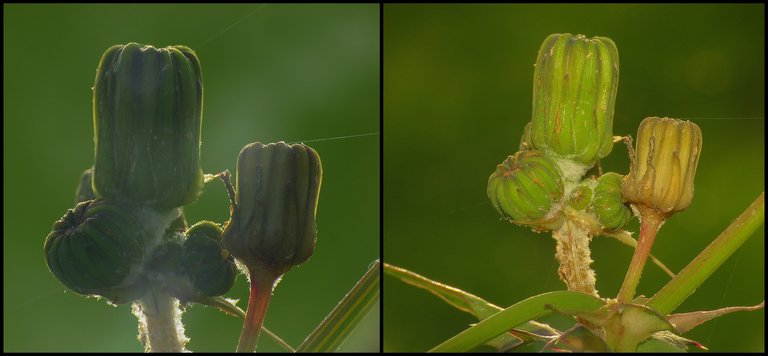
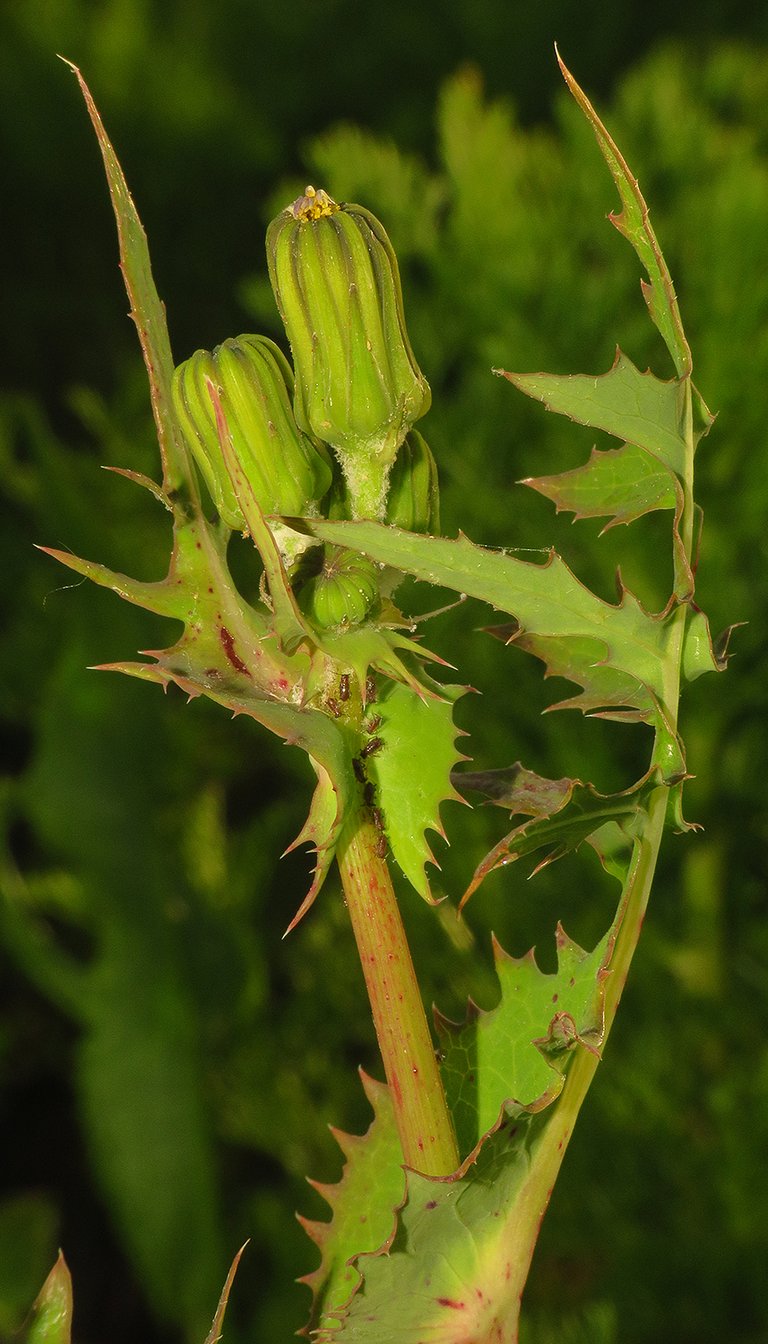
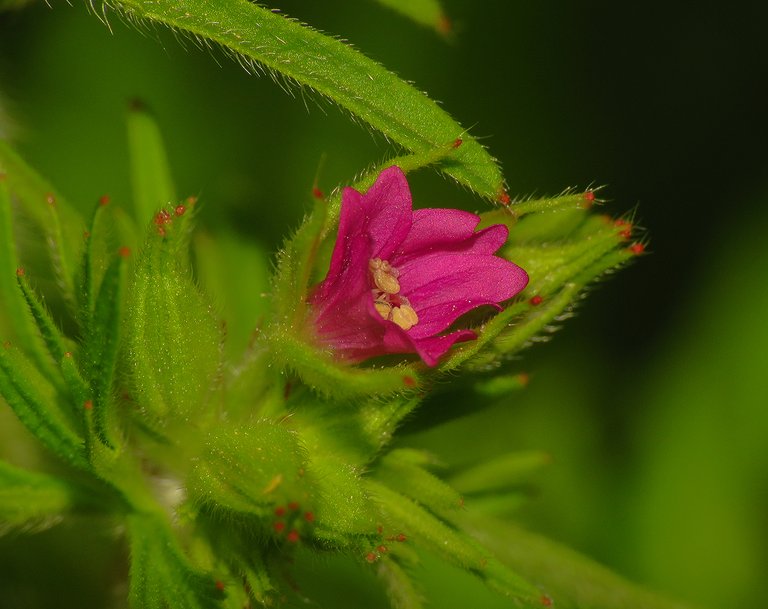
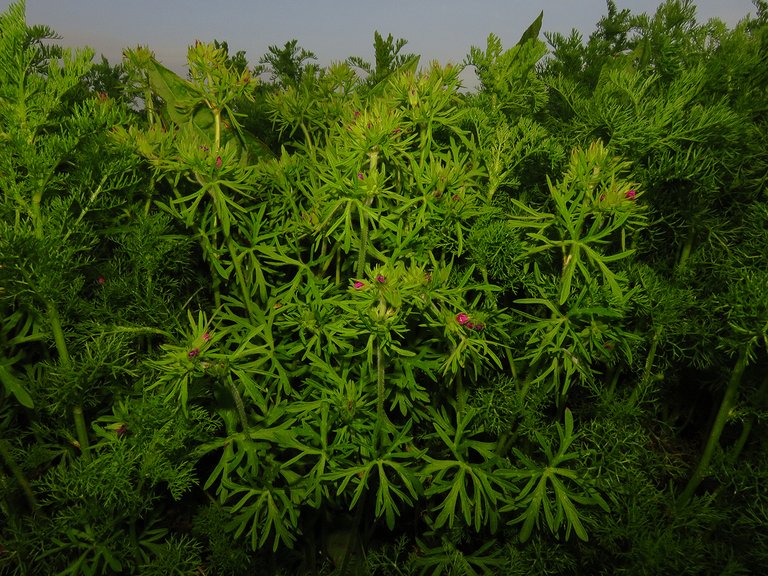
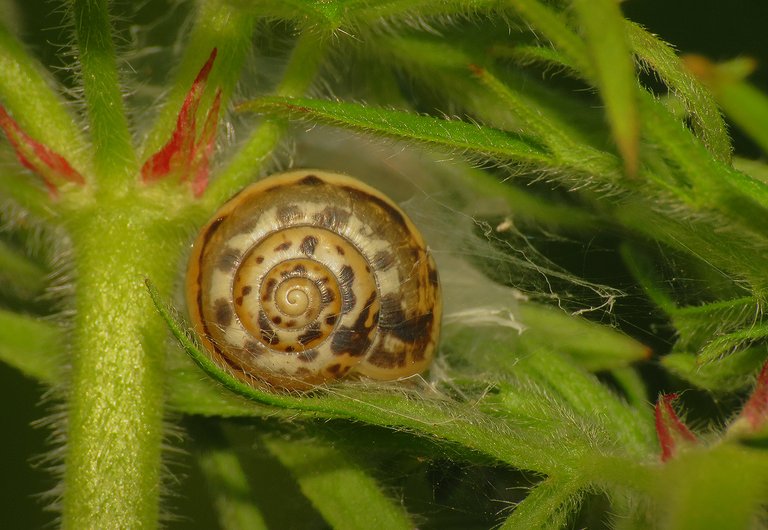
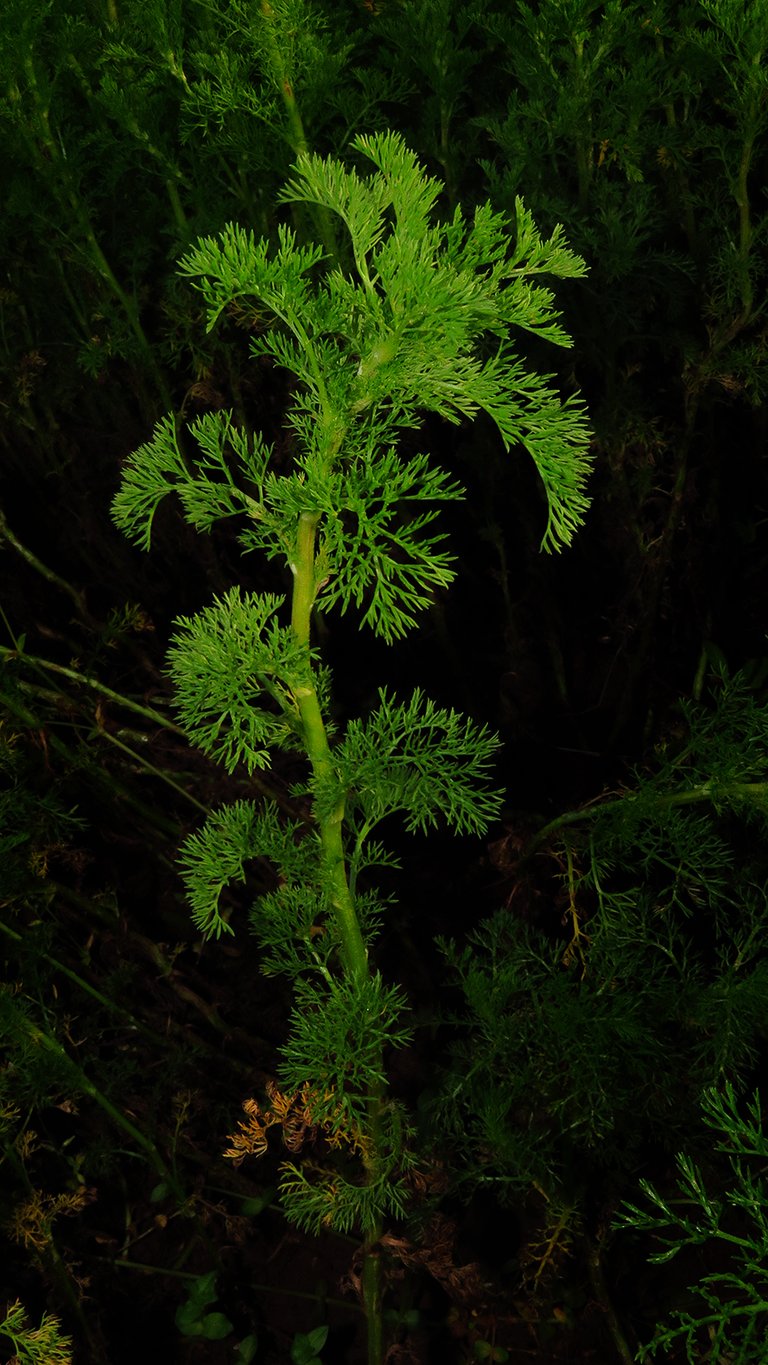
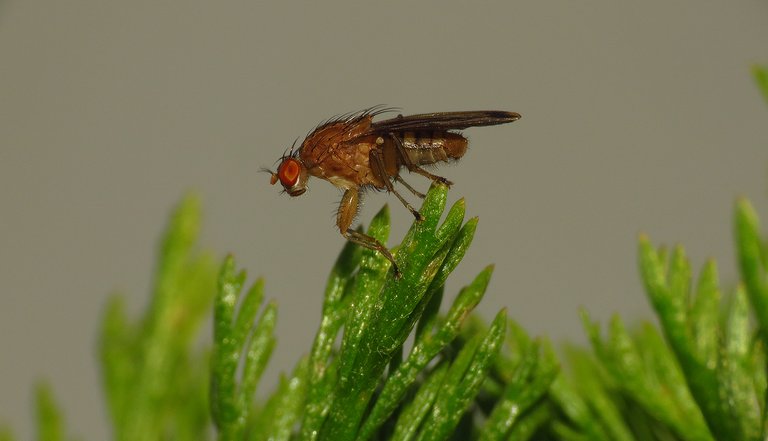
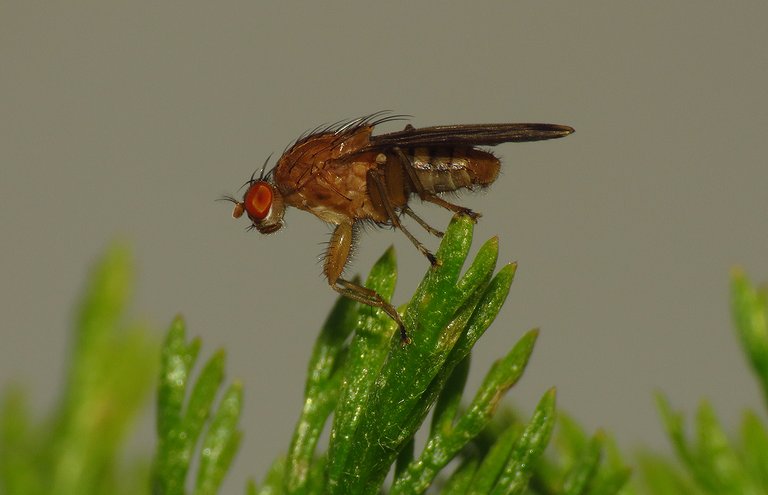
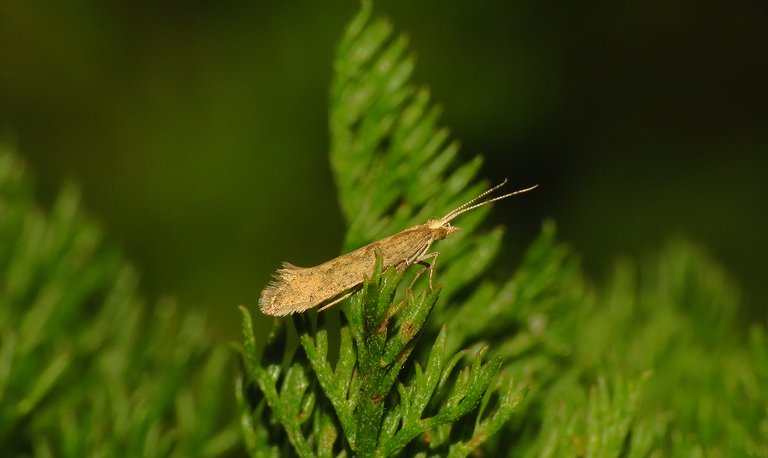
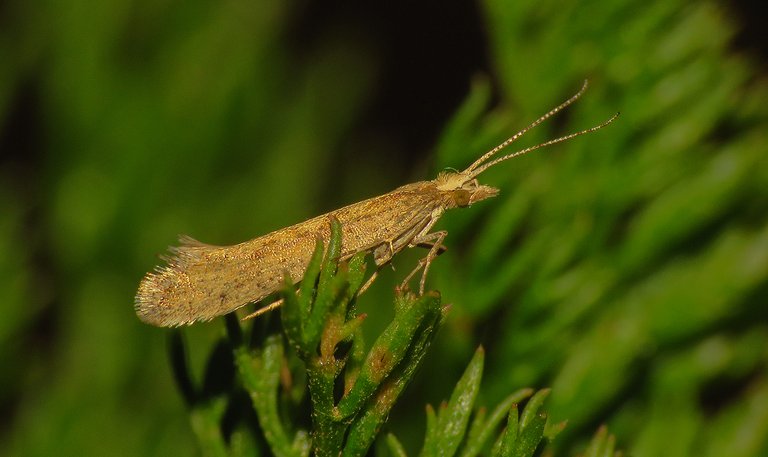
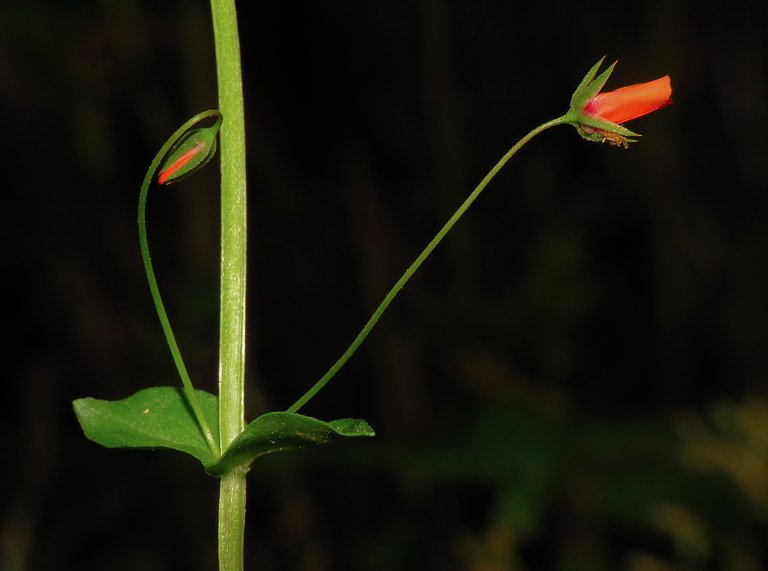
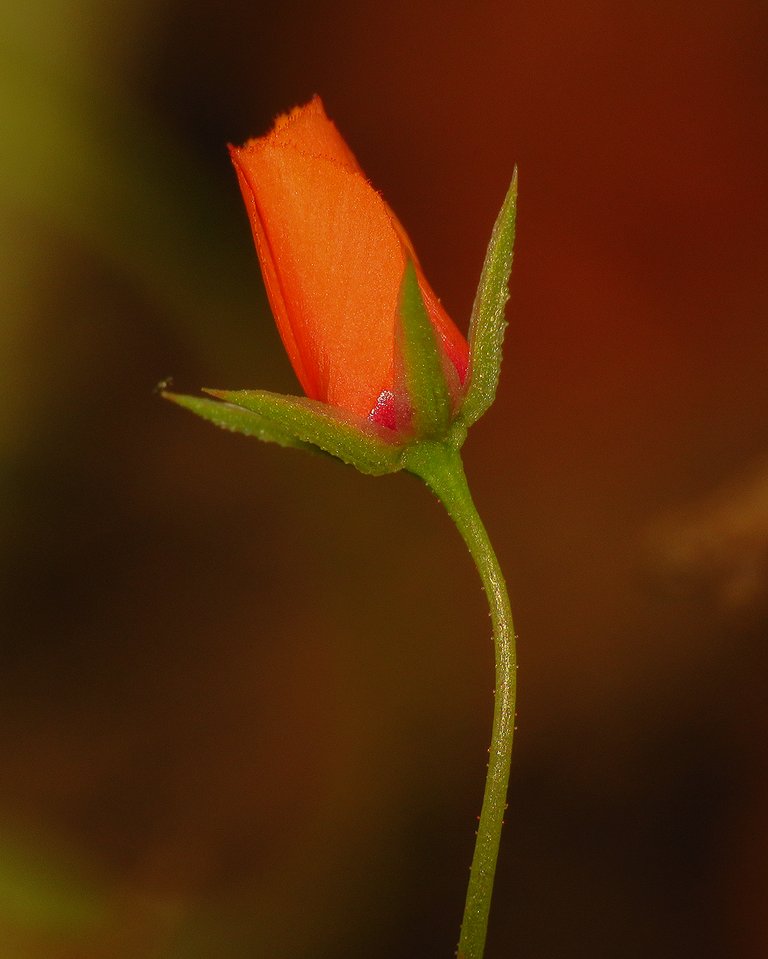
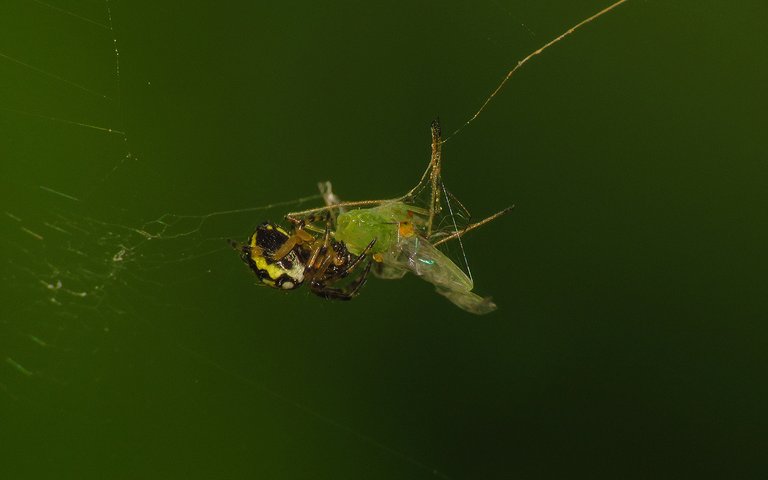
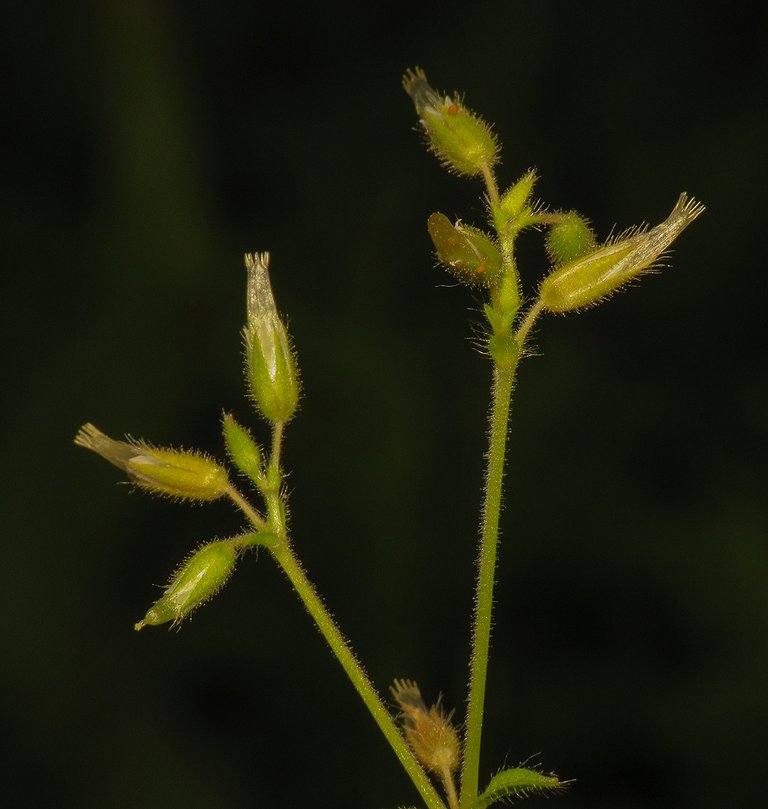

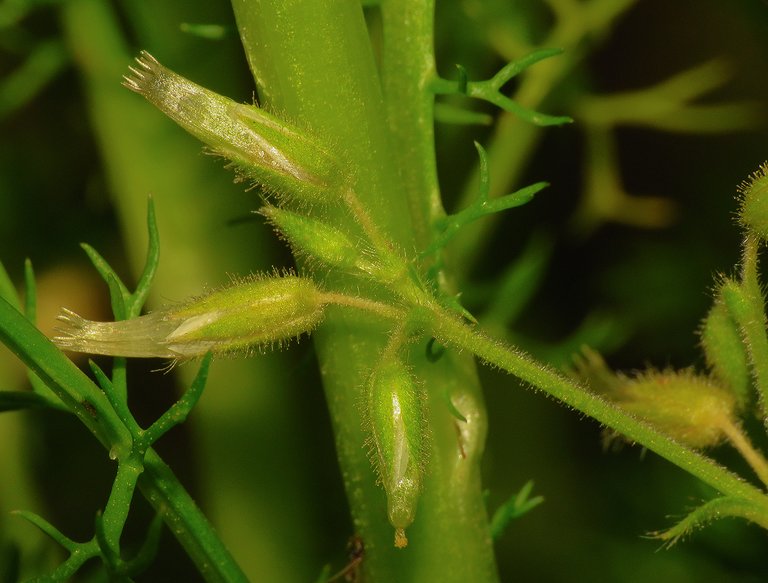
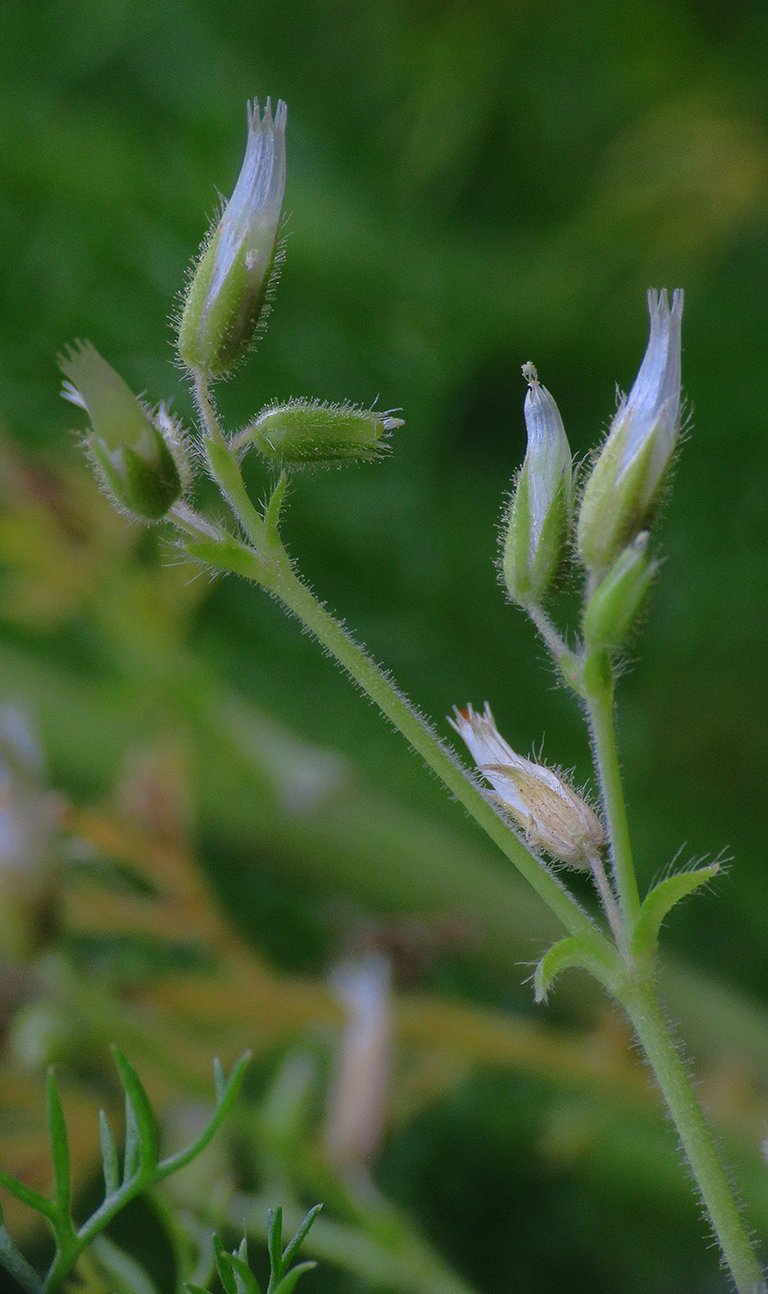
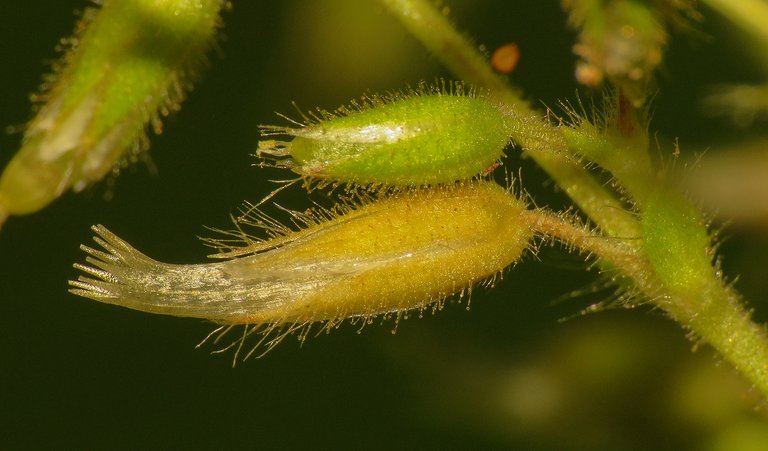

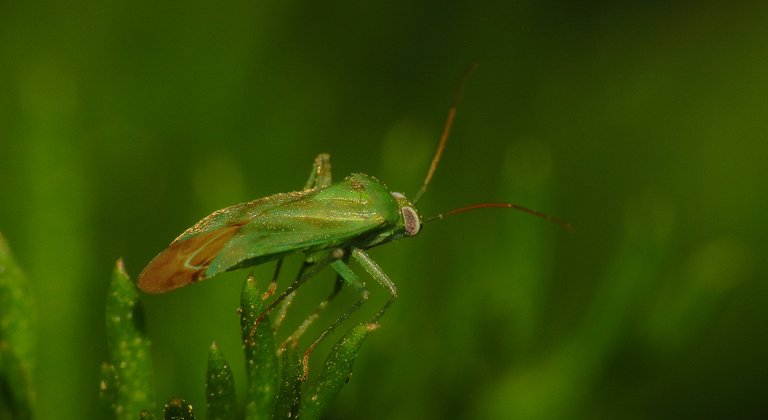
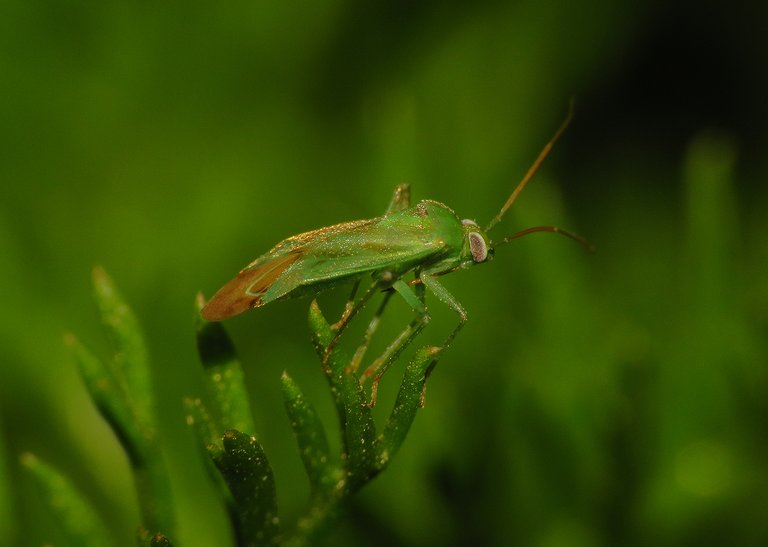
You received an upvote ecency
Good morning, dear friend @borjan
I think it was worth driving those five kilometers; this place is beautiful, full of wildlife.
What a simple and beautiful flower! It's the first time I've seen a scarlet pimpernel flower.
Beautiful macro shots.
Thanks. 🙂 Yes, many tiny wild flowers look great when seen through the macro lens.
Loved this elegant shot! ✨
That flower has the right character and attitude 😃 a natural born poser!
Hahaha no doubt! 😃
wrócił Borjan i wróciły robale 😛💚
😂 Cyrk owadów powraca do miasta! 😮 🦋🐜🕸🐛
After seeing your posts, I get to learn a lot about how to make pictures because I also have the same content. I also go to villages in the same way, I go to nurseries, and there I see different types of birds, insects, and butterflies. So the pictures you shared today are quite beautiful.
Thanks. Glad you like the post. If one likes nature, plants & animals, there is nothing better than being able to photograph them. I wish you all the best on your natural photo journey. Have fun.
Yeah I totally agree with you.
Your twentieth photo looks stunning
That’s a great job!
Thanks 🙂
Beautiful stuff.
I think your post is very much undervalued.
Let's hope it won't stay that way for long. 😆😂 Glad you like the post.
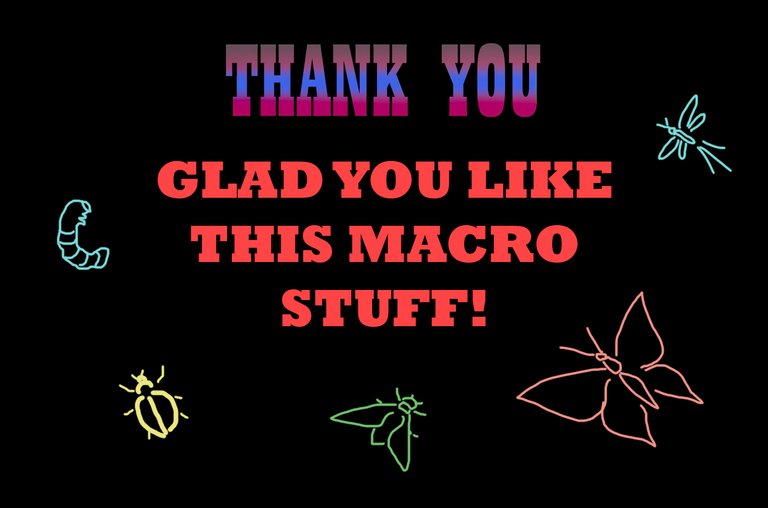
https://x.com/jewellery_all/status/1914761510246862985
#hive
The shadow pictures you took are just the best
They are great!
Thank you🙂
Wow these are really beautiful pictures I must confess. So beautiful
Thank you.
!discovery 30
This post was shared and voted inside the discord by the curators team of discovery-it
Join our Community and follow our Curation Trail
Discovery-it is also a Witness, vote for us here
Delegate to us for passive income. Check our 80% fee-back Program
https://x.com/lee19389/status/1914794190979862732
#hive #posh
Those are some great close up shots! The insects were great catches, and the little spider busy eating it's prey. The flowers were the nicest touch though, well done!
🌹🙂🌹
That insect wanted to get your attention, well, and you wanted to get its attention. It was love at first sight, or better at first subtle approach. both the insect and you are stealthy.
I'm still in awe with your skill in taking such pictures. Me, it's quite a struggle. Hahaha
I get energy from green!
🍀😃 green power 😃🍀
Now that bush cricket knew you were there...
It just loved the camera too much to move😂😂
Quite some wonderful pictures man✨
Thanks. 😃 Yes, some insects behave like experienced posers.
Hi, these photos with shadows looks great and interesting, other macro is also wonderful, great job 😊
Yes, those with shadows give a bit of diversity to the bunch of usual macro photographs. 🙂 Glad you like the post.
All the pictures are amazing... Especially those insect shots with the leaf.
This is best to capture the Nature beauty and spend time with it 😀😀
Yes, photographing in nature is relaxing and fun, especially when the weather is nice. 🙂 Glad you like the post.
Wow those are some amazing photos 😀
🙂
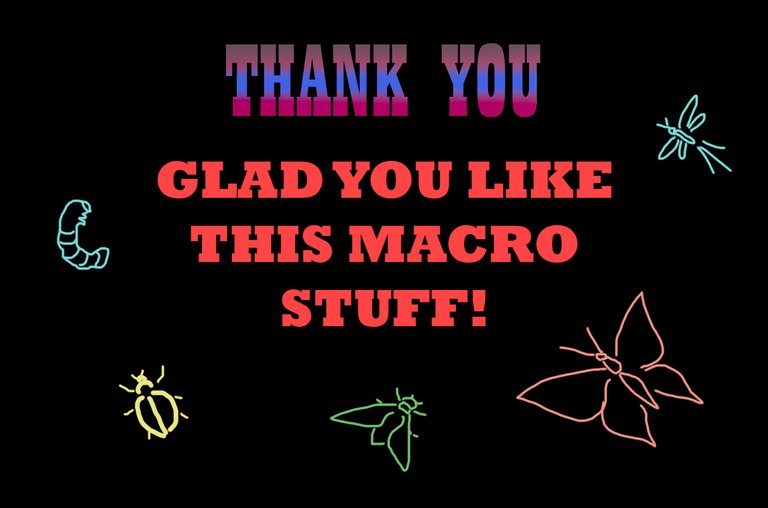
The insects are beautiful and unique. Many photos and each photo is beautiful. The photo quality is very high. I am impressed.
Espectaculares imágenes
Excellent photos!!!
!BBH
!LADY
View or trade
LOHtokens.@silversaver888, you successfully shared 0.1000 LOH with @borjan and you earned 0.1000 LOH as tips. (5/50 calls)
Use !LADY command to share LOH! More details available in this post.
🙂 Thanks for visiting.
Wow, amazing photographies!
Amazing, all images are very clear, detailed macros
I think you sure do need to brag about your sneaking capabilities cos you are super awesome. I need to rename you king of sneakers😂..those insects be having a time of their lives why you do the snapping away, that’s super creative and skillful
😁